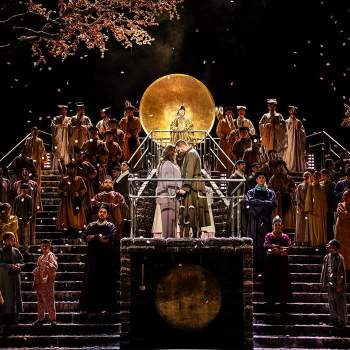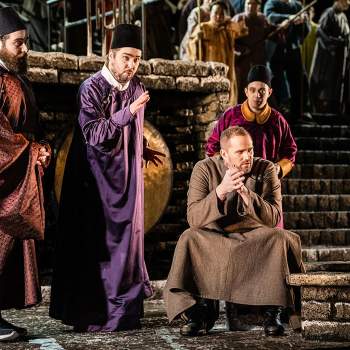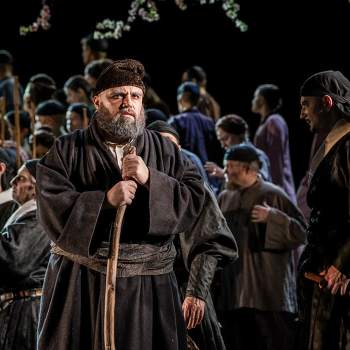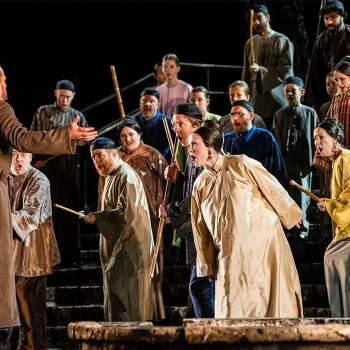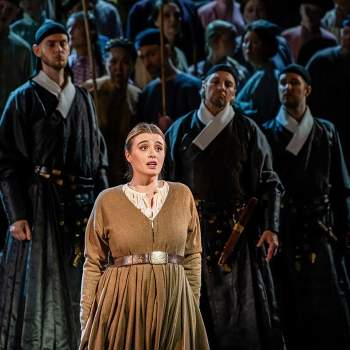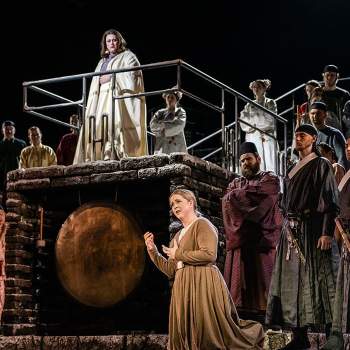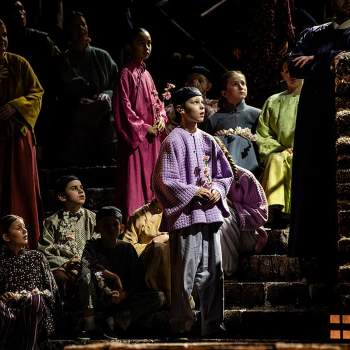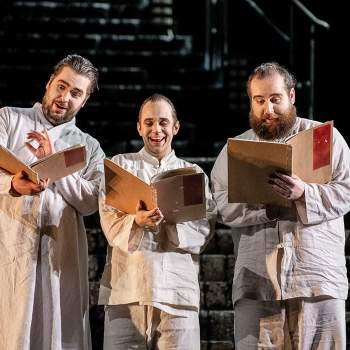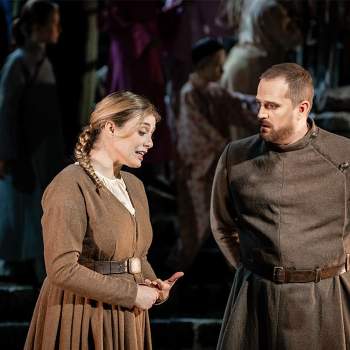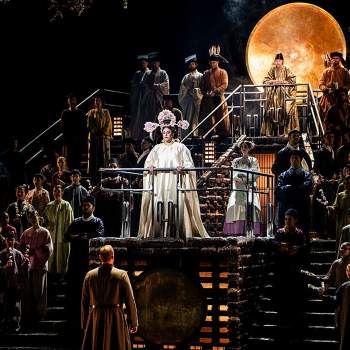Fantastic music, a captivating plot and epic scenes have made Turandot one of the world’s most popular and performed operas. Puccini’s masterpiece leaves no one untouched with its grand chorus parts, immortal arias and, not least, the epic opera hit Nessun dorma.
The story about the icecold Princess that has suitors executed one after another until she meets true love, is many hundreds of years old. It is a blend of Asian folk tales and legends about a real princess born in the 13th century. Giacomo Puccini’s opera on the theme plays out in the far east in fictitious times.
It’s no wonder that Turandot has become one of the great classics. The captivating story is told with incredibly beautiful music and grand scenes, with the chorus playing a significant role. The opera is famous for its difficult soloist parts that require “vocal cords of steel” and are mastered only by the best.
Unfinished masterwork
Puccini was seriously ill when he wrote Turandot and did not have time to complete the last pages. Puccini’s family, his publisher and Arturo Toscanini, who conducted the first performance, decided to commission composer Franco Alfano to finish the opus.
The first performance took place one and a half years after Puccini’s death. Toscanini chose to put down the stick in the third act with the words “Here end the master’s words”. You could hear a pin drop when the curtain went down, followed by cheers that seemed to never end. Alfano’s ending to the opera, which is often included since then, is generally regarded as not having quite the same class as Puccini’s music.
Goosebumps guaranteed
The opera’s best-known part is without doubt Nessun dorma, which has become one of the world’s best-known arias. Goosebumps are sure to set in when bombastic Vincerò is sung, if not before!
Outmoded stereotypes
Just like many other classic operas, Turandot is not free from prejudices, outdated gender roles, racism and exoticism. Director Sofia Jupither has tried to peel off some outdated stereotypes and found a universal history about the public and the private, power and responsibility, love and vulnerability that feels relevant today.
The underlying message of the opera is the same as it has always been: It doesn’t matter who you are or where you come from – we are all looking for love.
Plot
As a Princess, custom dictates that Turandot must get married. But the story about an ancestress who was dishonoured and killed by a man has made her cold and vengeful. To avoid marriage, she promises to marry any suitor who can solve three different riddles. Those who give the wrong answer will be punished with death.
Prince Calaf decides to woo Turandot despite all warnings. To her dismay he manages to solve the riddles. But Calaf wants to win the Princess over with his love. So he promises to let Turandot decide his fate – if she can find out his name.
Turandot threatens the entire population with death if the name is not revealed. Everyone is on the lookout trying to find out who the unknown prince is. Timur and Liù, who were seen together with Calaf, are brought to face Turandot. Liù loves Calaf with all her heart. To save him and avoid being tortured she says she is the only one who knows his name and commits suicide.
When Turandot and Calaf are left alone he reveals his name to the Princess, thus putting his life in her hands. Liù’s and Calaf’s unselfish acts makes Turandot’s heart weaken. Before all her subjects she announces that she has found out the stranger’s name: His name is Love.


